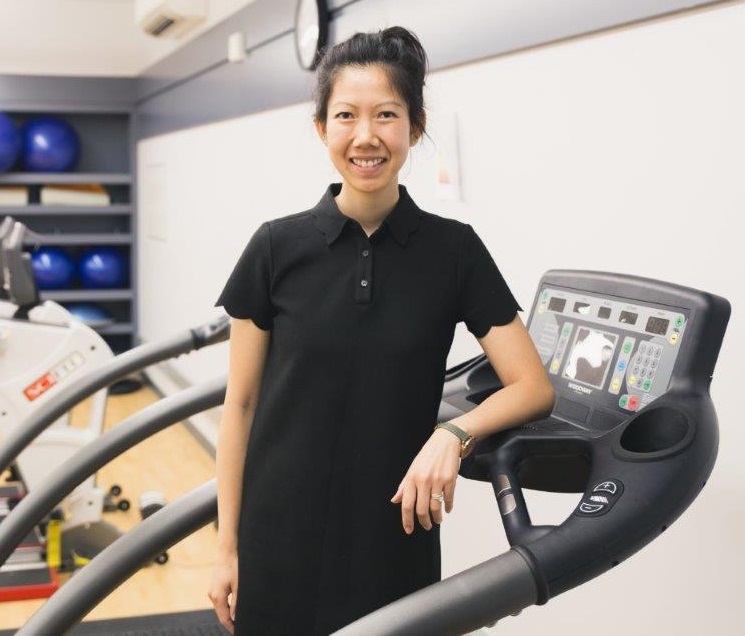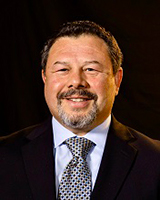
Winter 2023
Editor's Note

Echoing the President’s sentiments that this time of the year signifies a period of reflection on milestones, achievements, and the path forward, this issue is all about personal reflections and perspectives from advocates, researchers, and trainees.
Introducing Reduced Student/Trainee Membership Rates

The financial crunch of the students and trainees has been tough, especially as of late. The Society of Behavioral Medicine’s Membership Council heard the call to ease the pain. The council was determined to find a workable and sustainable avenue for supporting our trainees while delivering the full value of membership to the next generation of behavioral medicine scientists and practitioners.
Climate Change, Human Health, and the Path Forward: Perspectives from an Advocate-Researcher

One of the privileges of coming into research from the climate change advocacy movement is witnessing how the health community’s perception of it has changed. Interest in how to get involved has grown at an exponential rate, and not a moment too soon.
Lessons Learned While Creating and Refining an eHealth Pretest Genetic Education Platform

A year ago, I was awarded the Bridging the Gap Research Award. It was the first time that I received external funds to develop my own line of research. With this funding, I developed an alternative approach to address disparities in use of genetic services among early-onset colorectal cancer patients (EOCRC; diagnosed prior age 50) by expediting the genetic testing process to facilitate guideline-concordant genetic care.
The Power of Human Connection for Behavioral Science: A Personal Reflection

As academics, we pursue new knowledge to advance our careers and contribute to our fields of study. We may also be motivated to gain new knowledge out of curiosity, for the love of wisdom, or simply because learning has become a way of life. If you are like me, all of the previous reasons apply.
Behavioral Medicine in the Context of Palliative Care: A Conversation with an International Leader in Clinical Research and Patient Care

The field of palliative care seeks to improve the quality of life in patients (adults and children) and their families who are coping with the burden of a life-threatening disease. According to the World Health Organization, an estimated 56.8 million people need palliative care each year and this need is expected to grow due to the ageing of populations and increases in noncommunicable diseases.
The Role of Social Media in Family Health Promotion & Health Interventions -Implications for Behavioral Medicine

With increasing advancements in the scope and functionalities of digital technologies, the field of behavioral medicine has embraced digital health technologies to design innovative health interventions. This article will primarily focus on social media interventions on family health and highlight motivations and barriers to using social media.
Age-Wise Strategies: Including Older Adults in Your Behavioral Medicine Research

Harmful, negative stereotypes about aging (ageism) permeate our society, and often go unchallenged. A recent “Aged” filter on TikTok went viral and revealed deep fears and prejudices about aging. The “anti-aging” cosmetic industry was worth over $50 billion in 2022 and is expected to nearly double over the next decade.
Bridging the Gap between the Obesity & Eating Disorders Fields: A Q&A

Obesity and eating disorders are both highly prevalent and can affect many aspects of health and wellbeing. Both also often involve difficulties with or impact eating and physical activity, weight, and body image. Despite these similarities, work in these areas is often siloed, and efforts to advance research or clinical care in one arena is sometimes perceived as at odds with advancing the other.
Unlocking the Power of AI: Revolutionizing Cancer Education

Artificial Intelligence (AI) may be a valuable tool for cancer education. AI is capable of providing information and support to individuals seeking to understand various aspects of cancer. 1 Here is a summary of how AI can be used for cancer education:
The Current State and Future of Multiple Health Behavior Change: An Interview with Dr. Bonnie Spring

The Multiple Health Behavior Change and Multi-morbidities (MHBCM) SIG is relatively new to SBM. We talked to Dr. Bonnie Spring, an esteemed professor at Northwestern University, to learn about the current state of MHBCM research and the future importance of our SIG.
Hot Topics and New Opportunities for Impact within the Position Statements Committee

New and exciting topics, features, and opportunities are emerging this year for SBM members interested in health policy and health policy position statements. As members of the Position Statements Committee (PSC), we wanted to share these opportunities with the broader SBM community to promote awareness of and engagement with our exciting committee.
The Role of SBM Health Policy Ambassadors in Influencing Federal Policy

In Summer 2020, SBM launched the Health Policy Ambassador Program. This program recruits and trains SBM members to serve as ambassadors, bridging the gap between science and policy. SBM ambassadors build relationships with lawmakers and their congressional aides through regular contact, and, together, engage in evidence-based decision-making.
Writing an Effective Personal Statement

Personal statements are an important component of many types of applications across career stages including graduate programs, internship/postdoctoral positions and grants, but very little formalized training is focused on tips for writing successful statements. Writing an effective personal statement that presents you and your skills while also arguing for fit with a particular program, grant or position is challenging. Here are some important reminders when crafting your personal statement:
New Articles from Annals of Behavioral Medicine and Translational Behavioral Medicine
Awards, Honors and Inclusions
Classifieds
- Transdisciplinary Research on Energetics and Cancer (TREC) Training Workshop
- Vanderbilt University: Postdoctoral Fellow
- University of Rochester: T32 Fellowship / Research Assistant Professor
- Brown University: Postdoctoral Research Associate In Physical Activity Promotion
Visit the SBM Job Opportunities page for additional positions.
President's Message: What Does the Song “Auld Lang Syne" Mean and Does Anyone Really Know The Words?

For many, December marks a time to reflect on significant events or accomplishments that occurred in the past year. I often tend to look back at the end of the year questioning: “Did I get enough done this year?”, “Did I spend enough time with my friends and family?”, “Did I accomplish my new year’s resolutions (what were those again?)?”
Upcoming Events:
45th Annual Meeting and Scientific Sessions
March 13 - 16 2024
Philadelphia, PA
